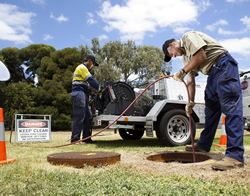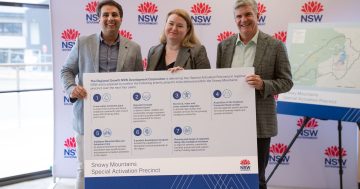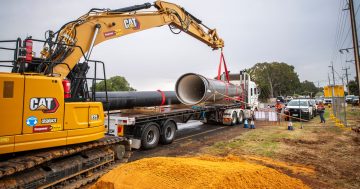 SA Water crews have been called to action in recent days to unblock sewer networks due to ‘troublesome unflushables’ finding their way into the system and blocking it for normal users’ use.
SA Water crews have been called to action in recent days to unblock sewer networks due to ‘troublesome unflushables’ finding their way into the system and blocking it for normal users’ use.
Reporting on the unnecessary crisis, SA Water said flushed shirts, socks and underwear caused one blockage in Gawler East, while wet wipes caused another in Salisbury with both messes needing to be removed by SA Water.
Senior Manager of Production and Treatment at SA Water, Lisa Hannant said making the right choice at the toilet could spare families the experience of sewage overflows in their homes.
“Despite our efforts to help curb the unwanted behaviour, we’re still seeing blockages caused by things that shouldn’t have been flushed down the toilet in the first place,” Ms Hannant said.
“Simply put, flushing anything apart from the three Ps – (toilet) paper, pee and poo – risks an overflow inside your home,” she said.
“The residents in both Gawler East and Salisbury were extremely fortunate not to experience an overflow on this occasion as the respective blockages occurred at their property’s connection point.”
Ms Hannant said another reason people should only flush the three Ps was that the Gawler East incident damaged the crew’s equipment.
“The ‘spring cleaning’ of clothes caused their jet rodder – which are hoses operated at a high pressure that use the power of water to dislodge and cut through blockages – to become stuck, forcing them to cut the hose at our sewer access hole,” she said.
“Our crew had to call in back-up, with a larger jet rodder vehicle – the Predator – arriving on the scene to finish the job by pushing the blockage out to the sewer main where it was retrieved via another access point.
“In this instance, the discarded items should’ve been placed in the general waste bin, and hopefully for the sake of their home, they won’t risk flushing clothes down the loo again.”
Ms Hannant said wet wipes remained the leading cause of blockages in SA Water’s Statewide sewer network, adding to the almost $2 million cost of redirecting them from pipes, pump stations and wastewater treatment plants to landfill.
“Unlike toilet paper, they are designed not to disintegrate and instead clump together to create a blockage,” Ms Hannant said.
“Popping them in the bin will help ensure they don’t come back to bite!” she said.







